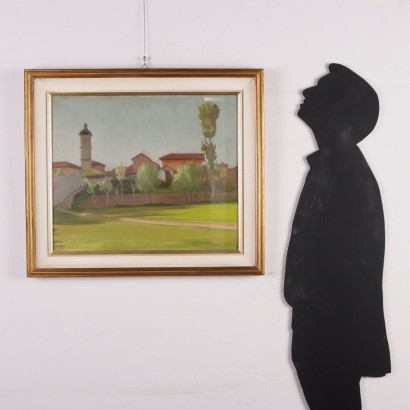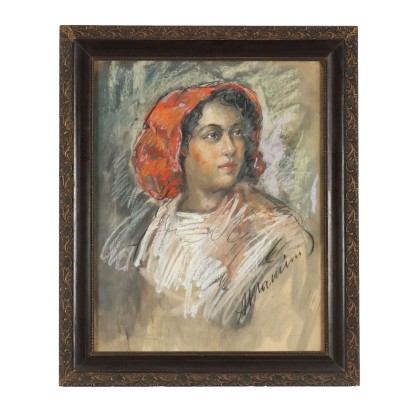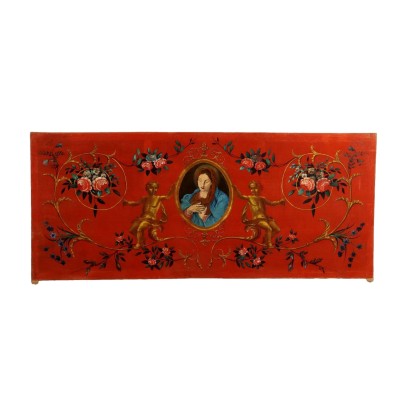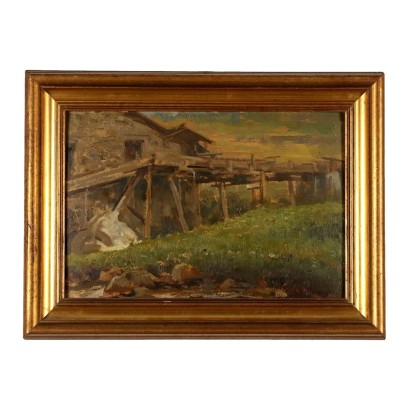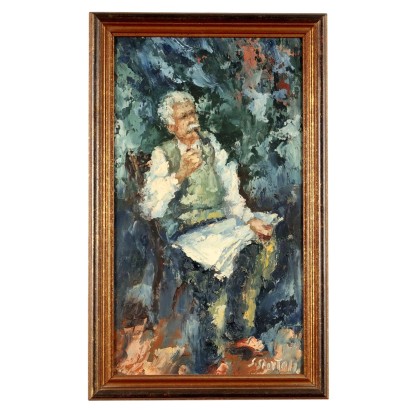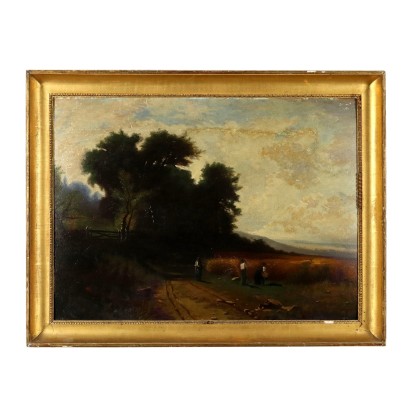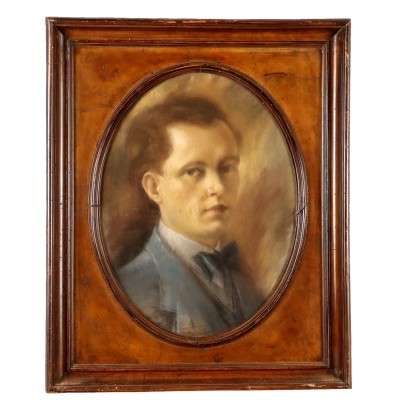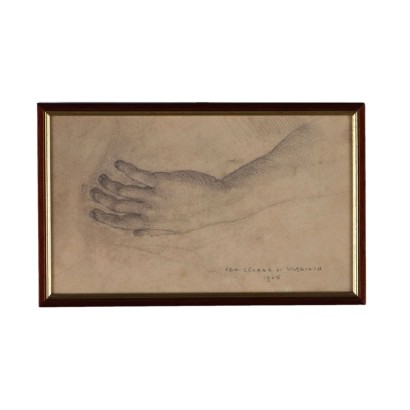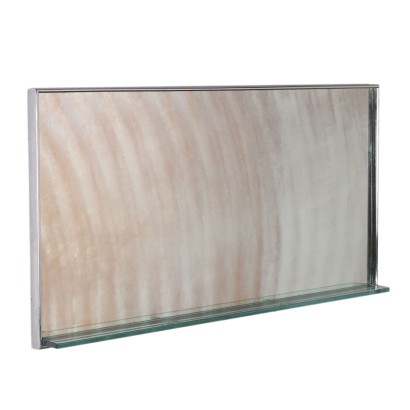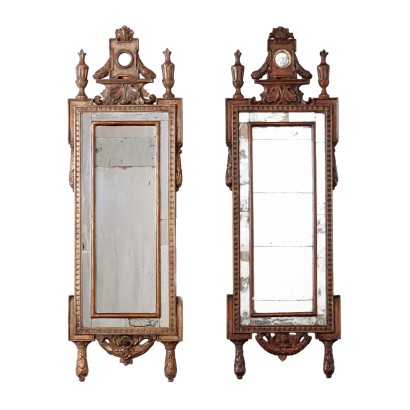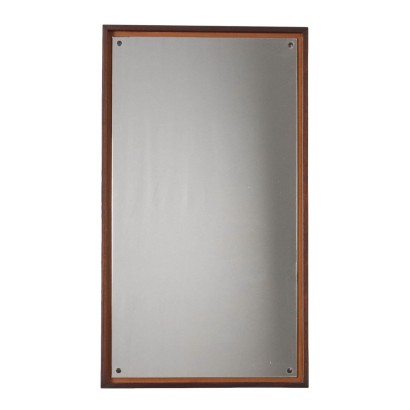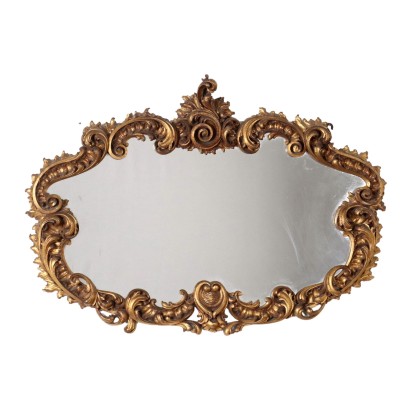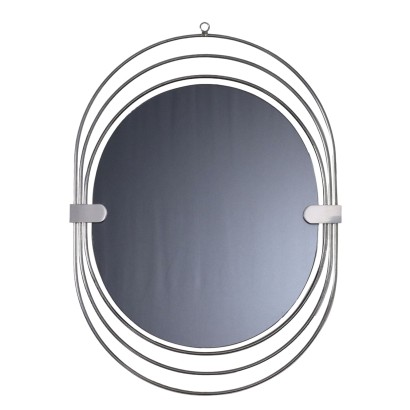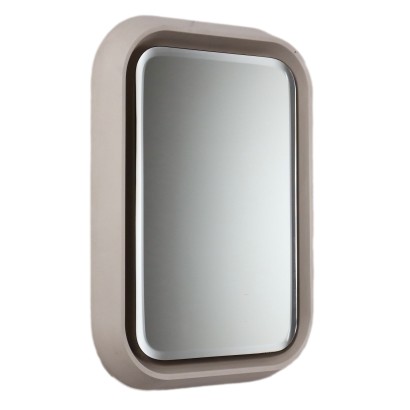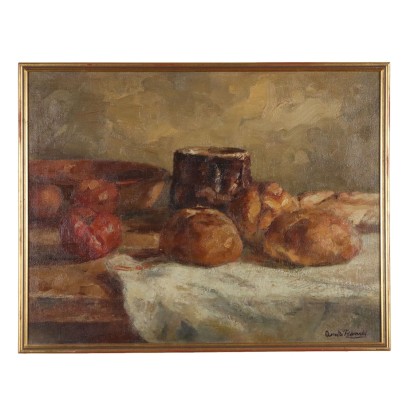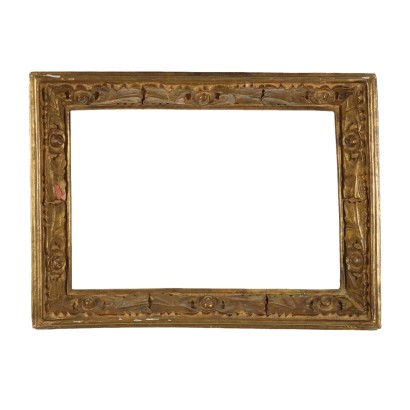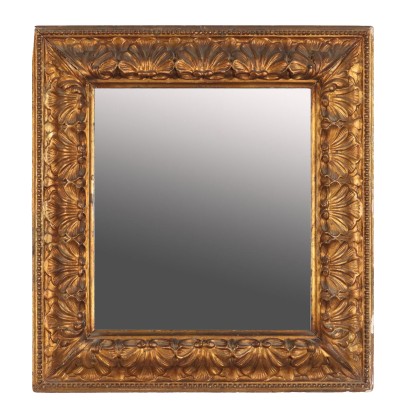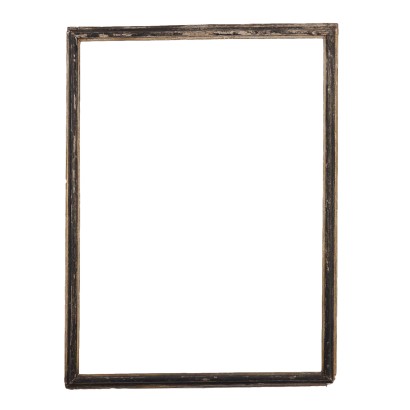Modern Painting by P. Carena Oil on Canvas Italy 1950s-60s - San Pietro in Verzolo
Features
San Pietro in Verzolo
Artist: Primo Carena (1910-1989)
Artwork title: San Pietro in Verzolo
Age: 20th Century / 1901 - 2000
Subject: Views/City Glimpses
Artistic technique: Painting
Technical specification: Oil on Canvas
Description : San Pietro in Verzolo
Oil painting on canvas. Signed lower right. The painting, coming from a private collection in Pavia, is published on page 70 of Simona Morani's monograph dedicated to the artist Primo Carena (Bolis editions), with the presentation signed by the art critic Rossana Bossaglia. On the back there is a stamp of participation of the work in the artist's personal exhibition at the Castello Visconteo in Pavia in 1992. The landscape, a stretch of countryside with a backdrop of hills, well expresses the subdued intimacy associated with the rigorous realism that characterizes the production pictorial work by the painter from Pavia. In his landscapes Carena tends "to capture the atmospheric reality of the places without indulging in descriptivism... but constantly supported by a lyrical vein, which is the underlying motif of all his production". The work is presented in a period frame. on page 66 of Simona Morani's monograph dedicated to the artist Primo Carena (Bolis editions), with the presentation signed by the art critic Rossana Bossaglia. On the back there is a stamp of participation of the work in the artist's personal exhibition at the Castello Visconteo in Pavia in 1992. The view of the small village on the outskirts of Pavia, seen from the countryside, well expresses the subdued intimacy associated with the rigorous realism that characterizes the production pictorial work by the painter from Pavia. In his landscapes Carena tends" to capture the atmospheric reality of the places without indulging in descriptivism... but constantly supported by a lyrical vein, which is the underlying motif of all his production". The work is presented in a period frame.
Product Condition:
Product in good condition, has small signs of wear. We try to present the real state as fully as possible with photos. If some details are not clear from the photos, what is stated in the description applies.
Frame Size (cm):
Height: 66
Width: 76
Depth: 5
Artwork dimensions (cm):
Height: 50
Width: 60
Additional Information
Artist: Primo Carena (1910-1989)
Primo Carena was born in Fossarmato (Pavia) in 1910, into a large and poor family, spending his childhood in the Pavia countryside. Enrolled by his father in the technical school of Pavia, he abandoned it in 1927 to dedicate himself to painting, starting to attend the Pavia Civic School of Painting, where Kiernerk, Sorgato, Soriga taught in those years. In 1930 he participated in the Lauzi Prize, winning second place, and in the same year he participated in the 1st Pavia Trade Union Exhibition, an event in which he continued to participate in its subsequent editions. In 1934 he created his first public work: the fresco at the elementary schools of Certosa di Pavia. In 1936 he moved to Milan where he came into contact with the artists of Bar Giamaica (Carrà, Tosi, Manzù..) In 1938 he created a fresco for the Prefecture of Pavia. Between '42 and '43 he worked on the cycle of frescoes in the Forlanini Chapel of the San Matteo Hospital. In the same years he was present in numerous collective and personal exhibitions: in particular in 1948 he participated in the XXIV Venice Biennale with Melograni and in 1951 at the VI Quadrennial in Rome with PEferia. In PAvia he also created a PAla depicting San Siro for the bishop's chair in the Cathedral. In 1965 he bought a house on the outskirts of Pavia, returning to live there permanently in 1983. Primo Carena died in Pavia in 1989.Age: 20th Century / 1901 - 2000
20th Century / 1901 - 2000Subject: Views/City Glimpses
Artistic technique: Painting
La pittura è l'arte che consiste nell'applicare dei pigmenti a un supporto come la carta, la tela, la seta, la ceramica, il legno, il vetro o un muro. Essendo i pigmenti essenzialmente solidi, è necessario utilizzare un legante, che li porti a uno stadio liquido, più fluido o più denso, e un collante, che permetta l'adesione duratura al supporto. Chi dipinge è detto pittore o pittrice. Il risultato è un'immagine che, a seconda delle intenzioni dell'autore, esprime la sua percezione del mondo o una libera associazione di forme o un qualsiasi altro significato, a seconda della sua creatività, del suo gusto estetico e di quello della società di cui fa parte.Technical specification: Oil on Canvas
The oil painting is a painting technique using powder pigments mixed with bases in inert and oils.Other customers have searched:
Arte Novecento, dipinti del 900, olio su tavola, pittura olio su tela, arte 800, pittura antica, arte contemporanea, quadro del '900, quadro grande, quadro olio su tela..
Se sei un appassionato d'arte, non perderti i nostri approfondimenti sul Blog Arte Di Mano in Mano e su FineArt by Di Mano in Mano - Arte:
Leggi di più
Ecco alcuni tra i principali articoli:
Vedute
Falsi nell'arte antica
Un messaggio di fiducia per ripartire
La potenza espressiva dell'arte figurativa etiope
Breve Storia del Collezionismo
Giorgio Upiglio, maestro dei libri d'artista
Matthias Withoos detto "Calzetta bianca"
San Rocco pensaci tu - Classic Monday
Ecco alcuni esempi dell'arte del Novecento più bella che puoi trovare da noi:
I Raccoglitori di patate - Lavoro estivo - Augusto Colombo, 1935
I Taglialegna - Lavoro invernale - Augusto Colombo, 1933
Il lavoro femminile, Contardo Barbieri, 1954 ca.
Sapevi che l'arte può essere anche un ottimo investimento (e non solo per grandi portafogli)?
L'Arte tra Collezionismo e Investimento
FineArt: Arte come investimento
Dai un'occhiata alle nostre rubriche di divulgazione sull'arte:
Epoche
Lavorazioni e tecniche
Mostre ed Eventi
Protagonisti
Leggi di più
Ecco alcuni tra i principali articoli:Vedute
Falsi nell'arte antica
Un messaggio di fiducia per ripartire
La potenza espressiva dell'arte figurativa etiope
Breve Storia del Collezionismo
Giorgio Upiglio, maestro dei libri d'artista
Matthias Withoos detto "Calzetta bianca"
San Rocco pensaci tu - Classic Monday
Ecco alcuni esempi dell'arte del Novecento più bella che puoi trovare da noi:
I Raccoglitori di patate - Lavoro estivo - Augusto Colombo, 1935
I Taglialegna - Lavoro invernale - Augusto Colombo, 1933
Il lavoro femminile, Contardo Barbieri, 1954 ca.
Sapevi che l'arte può essere anche un ottimo investimento (e non solo per grandi portafogli)?
L'Arte tra Collezionismo e Investimento
FineArt: Arte come investimento
Dai un'occhiata alle nostre rubriche di divulgazione sull'arte:
Epoche
Lavorazioni e tecniche
Mostre ed Eventi
Protagonisti
Product availability
The product can be seen at Cambiago
Immediate availability
Ready for delivery within 2 working days from ordering the product.




